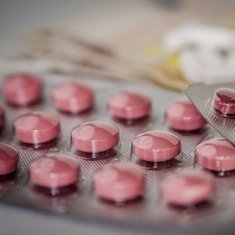Featured Quizzes
User Quizzes
Create Quiz
Data and Charts
Badges and Games
About JetPunk
JetPunk Shop
Dark Mode

mental health drugs
drugs to treat anxiety & depression
Rate:
Last updated: May 26, 2023
You have not attempted this quiz yet.
More quiz info >>
| First submitted | May 26, 2023 |
| Times taken | 20 |
| Average score | 39.4% | Report this quiz | Report |
60:00
Enter answer here
0
/ 33 guessed
Time Used
00:00
Best Time
00:00
The quiz is paused. You have remaining.
Scoring
You scored / = %
This beats or equals
% of test takers
also scored 100%
The average score is
Your high score is
Your fastest time is
Keep scrolling down for answers and more stats ...
|
|||||||||||||||||||||||||||||||||||||||||||||||||||||||||
No comments yet
New and Popular
Save Your Progress
Human Pharmacology
Quiz series by camisadorising
...
Copyright H Brothers Inc, 2008–2024
Contact Us | Go To Top | View Mobile Site
